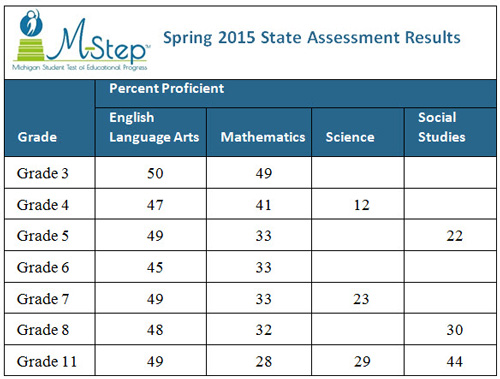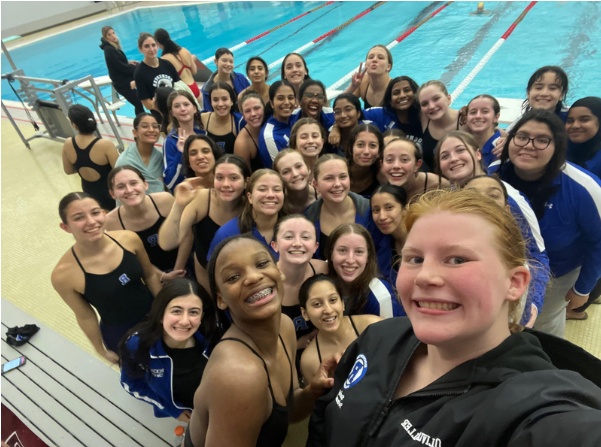Literacy levels continue to plummet

January 12, 2016
According to a study conducted by the U.S. Department of Education and the National Institute of Literacy, 32 million Americans can’t read as well as 775 million people worldwide. Research also shows that 21 percent of American Adults read below a 5th grade level and 19 percent of high school graduates can’t read.
Lacking the ability to read has multiple consequences, but one of the consequences is the link between low literacy and crime. According to organization Dosomething, nearly 85 percent of the juveniles who face trial in the juvenile court system are functionally illiterate, proving that there is a close relationship between illiteracy and crime. More than 60 percent of all inmates are functionally illiterate. It has also been shown that two-thirds of students who cannot read proficiently by the end of 4th grade will either end up in jail or on welfare.
Reading is one of the most important skills one can have and has many benefits. Recent studies have shown that, among other things, reading can not only help destress, but can actually make one happier and more able to understand and navigate complex relationships.
English teacher Erin Burke comments on the benefits of reading.
“Regardless of what you read, just reading really expands your thinking, your vocabulary and your thinking,” Ms. Burke said.
Senior Maria Barrios also sees the necessity of reading.
“Reading is important for people to improve comprehension skills as well as to give them a different perspective or point of view in life,” Barrios said.
According to an article on the Huffington Post, over the past decade, the literacy rates in America have stayed pretty stagnant. While the rates have not decreased in the last 10 years, they haven’t improved either. Seeing that 14 percent of the American population is illiterate, and has been that way for years, it is obvious that literacy isn’t on the forefront of people’s minds.
Ms. Burke explains why she thinks reading has strayed from the minds of people today.
“I think with the advent of technology, society’s, as a whole, attention spans have gotten less and less,” Ms. Burke said. “So a lot of us are so visual that we don’t even have the patience to sit down and read and get into a story.”
English teacher and English curriculum coordinator Ashley Painter agrees, saying that the introduction of technology into reading has become a distraction.
“What I see is that the students sometimes lose the sustainability in their reading, their ability to focus,” Mrs. Painter said. “So I think some of our ability to read complex text over a period of time has changed. We are so used to instantaneous answers — where you can Google anything, send out tweets that have to be 140 characters or less — it has condensed our reading down.”
In the spring of 2015, students in third through eleventh grade (not including tenth graders) took the M-STEP. For the language arts part of the exam, grades ranged from 45 percent to 50 percent. The third graders did the best on the exam with a 50 percent passing.
Mrs. Painter found the new set of standards to be difficult, saying that she feels that the kids who took the exam didn’t actually fail.
“I think that some of our challenges have to do with a new set of standards that were much more rigorous than what students had in previous years, so if you make the test harder, there is going to be a period where students struggle as we try to get them to a higher level in their understanding,” Mrs. Painter said.
Mrs. Painter also adds that there are no earlier precedents to compare the scores to, making it difficult to understand exactly what is and isn’t a passing score.
“I have trouble even saying that our students failed it, because there is no history of what a passing score would be and what a certain score means in terms of where a student is, and in terms of understanding the curriculum,” Mrs. Painter said.
Because scores weren’t great, the question is whether or not teaching needs to be improved, or if the standards should be lowered because they were so rigorous. Ms. Burke agrees with Mrs. Painter that the test needs a couple of years.
“I think we are doing a pretty good job as teachers,” Ms. Burke said. “Let’s look at the MSTEP in a few years. I mean, it was the first year of it, so we don’t know enough about it. We continue to try to get our students to succeed, and we do pretty well in this district.”
Though some place a lot of stock into the accuracy and importance of tests like the M-STEP, others feel as though there is too much emphasis on standardized tests and that they cannot completely measure the competence of the kids taking them.
“I think that there are too many standardized tests. It’s one tool for assessment, but I don’t think that it should be everything,” Ms. Burke said. “So I don’t know if it’s an accurate measurement really, but it’s something.”
While teachers are still teaching many of the important classics, students may need more custom reading lists to fit the changing times. Student interest in reading is low and it may have something to do with the almost unchanging curriculums.
“The reading curriculum hasn’t changed much over the last 10 years,” Ms. Burke said. “We are still teaching a lot of the same books as we were 10 years ago.”
However, reading is something not just for students to do at school, but at home too. Mrs. Painter explains the importance of developing a love for reading early in life.
“It really helps to develop a love of reading in your kids early; read to your kids every night,” Mrs. Painter said. “Even when they’re older take them to the library in the summer. You know, the summer is a time for them to explore their own passions is reading.”
On the other hand, Barrios feels as though there should be reading requirements.
“To help improve reading levels, there should maybe be a monthly or weekly reading requirement set by teachers where students log their hours and can even get rewards for the amount of reading that they do,” Barrios said.
But one things it seems that everyone agrees on is that people just need to keep reading.
“I think it’s important to keep reading, not just in school, but beyond what we’re doing in school,” Ms. Burke said. “Find something that interests you in reading. There is a whole world of literature out there, and what we are teaching is only a small portion of it.”






